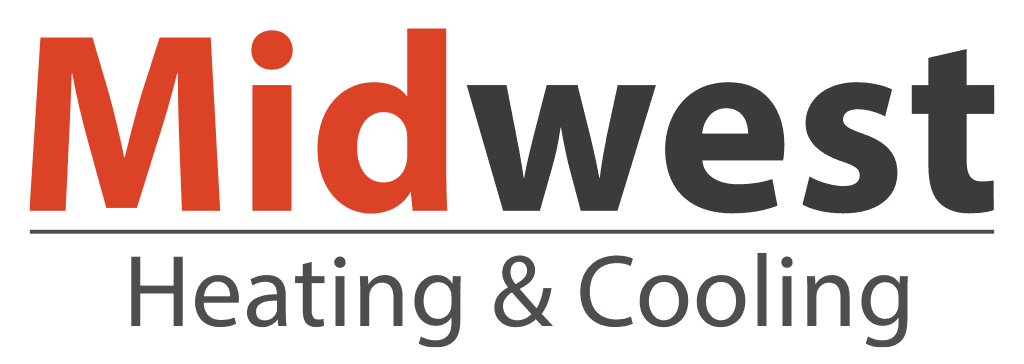How Ventilation Impacts Your Indoor Air Quality

Weather is often a significant influence in the daily lives of Wisconsinites. With winter chills and snowfall to humid and hot summers, it can be hard to keep your home at the perfect temperature. The United States Center for Disease Control (CDC) indicates that Americans typically spend up to 90% of their time indoors. What does this mean for your Mukwonago home? The CDC’s stat shows that the quality of one’s indoor air is more important than ever.
HVAC experts refer to the quality of indoor air as indoor air quality or “IAQ” for short. You may have had thoughts similar to “at least I’m escaping the polluted outdoor air.” A statement like this, however, is not entirely true. The Environmental Protection Agency (EPA) has said that indoor air can be up to five times more polluted than outdoor air! Before you panic, the Midwest Heating and Cooling experts can provide you with solutions for any indoor air issues in your Mukwonago home.
What Is Indoor Air Quality?
At Midwest, we use the EPA’s definition of IAQ since they are the experts at tracking indoor and outdoor pollution. The EPA defines indoor air quality, or IAQ, as the quality of air within and around buildings and other structures. But how is IAQ measured? An air analysis device analyzes the air in your home or business for 30 or more minutes to create a report on your air quality. The test results show the number and concentration of contaminants, chemicals, and other particles in your air. These IAQ assessments can analyze the particles in schools, offices, and all other buildings too.
Your Lifestyle Impacts Your IAQ
Knowing what is in your air will help you manage your health and how you feel. Indoor air quality is affected by several things. At home, it can be affected by your lifestyle:
- The cleaning or beauty products you use
- The number of pets you have and their shedding habits
- The amount of smoke that gets trapped indoors from cooking and/or smoking inside
Each factor has a direct impact on the air you breathe.
Make Positive Changes With Your HVAC System
Not all aspects of indoor air quality are negative. The indoor air quality in your home can be positively impacted by your heating and cooling systems. Air circulates through your HVAC system five to seven times per day. Homeowners have many opportunities to treat and improve their inside air. Improving air quality can be as simple as changing your system’s air filter when it is dirty or more than six months old. Changing a filter, however, won’t solve every IAQ problem. Investing in healthy home solutions such as ventilators, humidifiers, dehumidifiers, UV lights, and ionizers can help improve your air quality.
IAQ Affects Performance At Work, School and Home
In other buildings, the biggest concern for IAQ is the number of people contained within a space. When people breathe, they exhale Carbon Dioxide (CO₂). Crowded offices and classrooms commonly have too much CO₂, which leads to negative impacts on performance and health.
Increased Ventilation Leads To Increased Performance
Buildings such as offices and schools must take adequate measures to limit the amount of CO₂ in their facility to enhance employee health, performance, and productivity. Proper ventilation plays a vital role in reducing the amount of CO₂ indoors. To limit the amount of CO₂ and other pollutants in your air, you must ventilate the space. Ventilation is the process of removing stale, polluted air and replacing it with fresher outdoor air. Ventilation helps reduce odors, dust, dander, and other chemicals and pollutants.
The importance of ventilation can be seen with studies performed in schools. Francis Koster, Ed. D. discovered that the ideal amount of CO₂ for learning is around 750 parts per million, or PPM. He found this through several rounds of standardized testing among different levels of CO₂. Koster’s research shows that many classrooms reach 2,000 or more PPM during the day when children are actively learning. When CO₂ is at this level, students have more difficulty focusing, learning, and comprehending information. Koster found that the children’s brain scans showed the least amount of activity inside the classroom and the most activity after being outside!
How To Ventilate Your Home Or Building
Unfortunately, most climates don’t allow students to learn in outdoor settings, and neither do workplaces. Wisconsin winters can be cold and snowy, while summers bring unbearable heat and humidity. So how do we bring outdoor air into our offices, classrooms, homes, and other buildings? You can take small, slightly effective measures to ventilate your home. Midwest suggests:
- Opening the windows in your home, school, or office for at least 15 minutes per day to help bring in some of that fresh outdoor air.
- Using fans can help circulate air which will help prevent it from becoming stale.
- Using your kitchen’s ventilation system when cooking and
- Using your bathroom’s ventilation system when the air becomes humid.
All of these actions can help improve your indoor air quality, but they are not permanent solutions to such a significant problem.
ERVs Are Effective At Home, School, And Work
The most common type of ventilator in Wisconsin is an energy recovery ventilator or “ERV.” The ERV connects to your HVAC system to take stale air out of your home and bring fresh air indoors. The ERV provides a space for the fresh air to flow seamlessly into your home with the ability to transfer temperature and humidity levels. The fresh air will feel like the rest of the air in your home, so there are no hot or cold spots. ERV operation reduces the costs to heat or cool (depending on the season) the fresh air brought in from the outdoors. ERVs work in your home and larger spaces such as schools and offices, making it the perfect solution to most IAQ problems.
Let Midwest Bring Fresh Air Into Your Home
Midwest Heating and Cooling’s indoor air quality experts can perform an air analysis test in your home to curate specific solutions to your indoor air problems. An energy recovery ventilator (ERV) solves many IAQ issues. Increase the amount of fresh air in your home while saving on energy costs.
You deserve the best. Contact Midwest. Call 414-704-0129 or request service online to schedule your indoor air analysis today.
Need HVAC Service?
Contact the experts at Midwest Heating & Cooling.
Call us at 414-209-4668!
